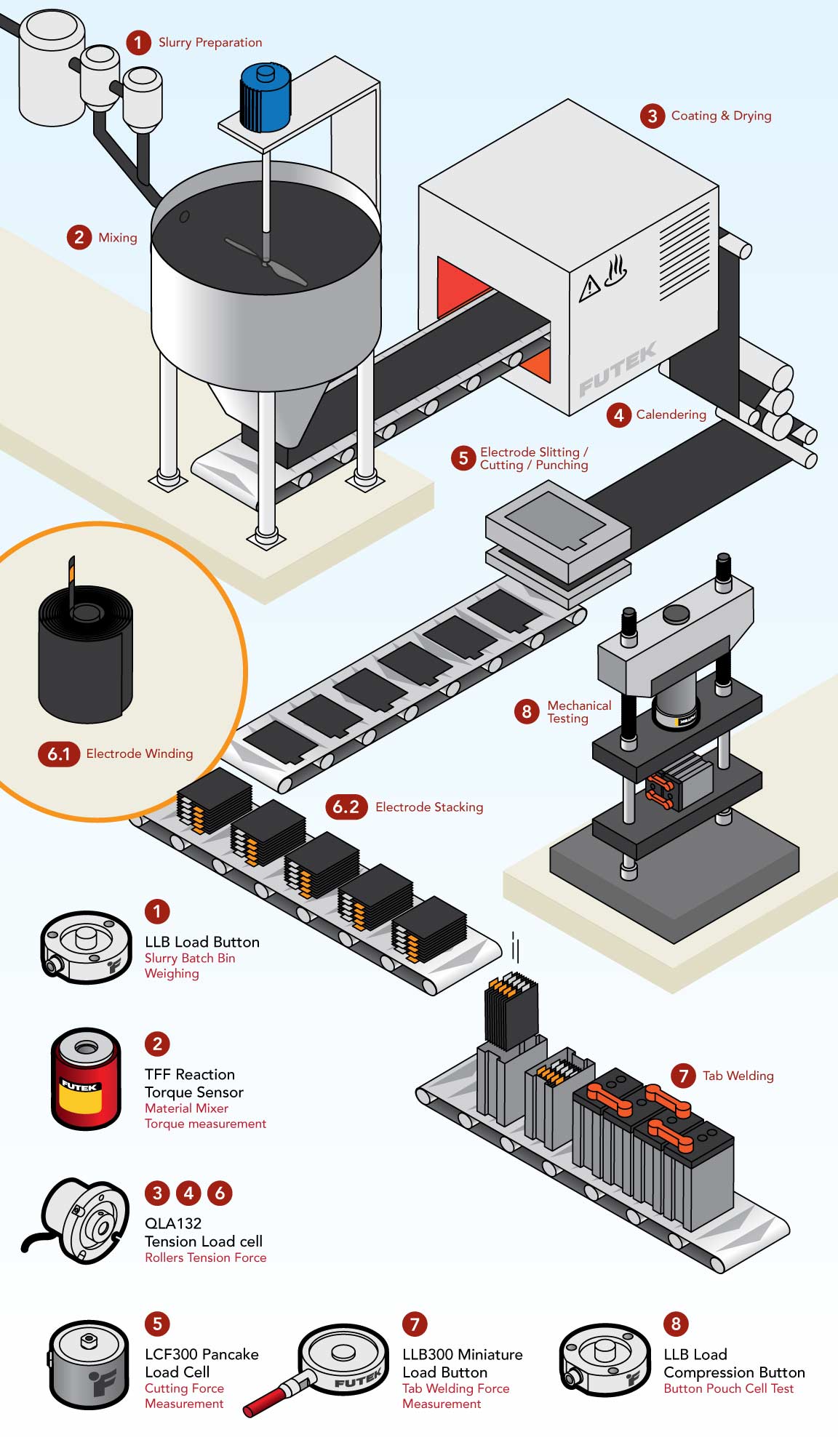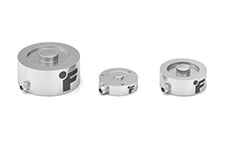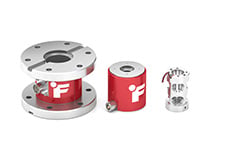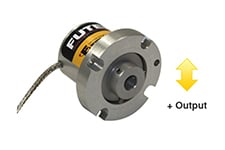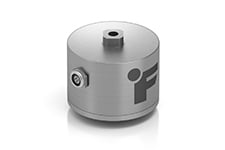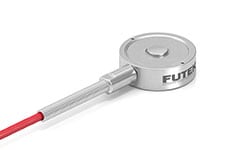Battery Manufacturing Automation and Force Sensors
The rapid worldwide shift in the energy matrix has prompted global economies to race to reduce the reliance on the fossil fuel industry, given its carbon footprint and emissions as well as all the geopolitical tensions caused by the oil and gas industry.
The electric mobility industry is increasing the necessity for battery production on an unprecedented scale. It is expected that lithium-ion battery solutions will overtake the combustion engine as the dominant solution for vehicle power sources in the near future. With the EV industry's robust anticipated growth, comes along the necessity to build efficient and high-throughput EV batteries factories and production lines. FUTEK force and torque sensors are important components of these new initiatives, as advanced measurement solutions are paramount to ensure in-process inspection, battery manufacturing process closed-loop force & torque control, and mechanical testing for quality control.
Control and precision for battery production
From the slurry preparation to final mechanical testing, FUTEK has suitable sensor solutions for several processes of the battery production. In battery manufacturing, high yield and repeatability are just as important as cost-effective solutions. This is true for many different process steps, from slurry mixing, calendaring, and electrode precise slitting and force-controlled applications.
Without precise measurement and control of process variables, the battery manufacturing process may be inconsistent, resulting in quality issues, process inefficiencies, and loss of production. FUTEK's extensive sensor portfolio allows process control engineers to develop automated solutions to most of the battery manufacturing processes, including:
- Slurry Preparation and Mixing;
- Coating & Drying;
- Calendering;
- Electrodes Slitting / Cutting / Punching;
- Electrode Stacking;
- Battery Tab Welding;
- Battery Mechanical Testing;
1 - Slurry Preparation - Batch Bin Weighing
Battery cell raw materials are expensive and represent more than 50% of the total production costs. Weighing the batch bin is an alternate approach to determining moisture content and is key to providing uniformity and traceability. FUTEK’s LLB Load Button Series can be utilized in manufacturing batch weighing applications. Installed at the base of each leg of the slurry container, these compression-based Load Buttons will measure the contents of the container as it increases and decreases.
2 - Slurry Mixing – Material Mixer Torque Measurement
Battery slurries are fluid matter containing a large percentage of solid particles of different chemicals, sizes, and shapes in a highly viscous media. Measuring and controlling the slurry viscosity is key for the process stability, ease of mixing, and coating performance, which impact finished electrodes. Determining the viscosity and rheological properties measurements of the slurry requires a mixer with an embedded rheometer. In this case, a rheometer with a rotational cylinder is used to measure slurry shear at various rotational velocities. Accomplishing this requires a torque sensor to measure torque generated as the slurry is mixed. A TFF Series Reaction Torque Sensor is mounted along the mixing agitator axle cylinder holding the slurry undergoing analysis by the viscometer.
3, 4 - Coating, Drying, and Calendering – Belt Rollers Tension Control
Maintaining the correct level of tension on web materials is critical to ensure quality and minimize material breakage and other battery manufacturing process issues that can lead to unplanned downtime. Battery manufacturing machines require high-quality tension control components to ensure increased machine capabilities, wider operating ranges, and better process control. FUTEK’s QLA132 is a Custom Roller Tension Shear Force Load Cell for both closed-loop and open-loop tension control. This model can be further customized according to your roller tension measurement needs.
5 - Electrode Slitting / Punching – Cutting Force Measurement
After coating and calendaring, battery electrodes are precisely cut to the required dimensions and shapes for individual cells. This slitting or punching process demands high precision to maintain strict tolerances for electrode width, edge flatness, and burr-free surfaces. Achieving a clean, accurate cut is essential to prevent potential defects that could lead to cell malfunction or compromised performance. The LCF300 Pancake Load Cell is a miniature universal load cell suitable for cutting force measurement applications. Its low-profile design ensures compatibility with compact setups, while its exceptional accuracy and fatigue resistance make it an ideal solution for maintaining process control and ensuring consistent cutting quality.
7 - Tab Welding Force Measurement
Resistance welding has been used in the battery manufacturing industry for almost 4 decades. Most recently, the application of displacement and electrode force measurement provides manufacturers with the ability to monitor and closed loop feedback control tools to fine-tune the tab welding process to ensure both high quality and yield. FUTEK LLB300 Load Button can be employed as a force-sensing device to provide force feedback to the tab welding automation system.
8 - Pouch Cell Mechanical Testing
During the charging and discharging cycles of lithium-ion pouch cells, significant mechanical expansion occurs due to the movement of lithium ions into and out of the electrode materials. This expansion, often referred to as battery swelling, impacts both the performance and longevity of the cells, especially in pouch cells where dimensional changes are more pronounced.
To accurately measure this mechanical response, the LLB Compression Load Button Load Cell is utilized to monitor the force exerted on the end plates as the cell swells. This allows for the quantification of the stress placed on the cell structure, which is critical in understanding the mechanical behavior under real-world conditions, such as varying charge rates and environmental temperatures.
Alternatively, mechanical setups may also incorporate the LCF450 Pancake Load Cell as an alternative transducer, depending on the specific configuration of the test rig. These load cells are highly sensitive to small changes in force, ensuring precise force measurement.
Contact Us
Please Contact Us with questions.
Battery Manufacturing Automation and Force Sensors
The rapid worldwide shift in the energy matrix has prompted global economies to race to reduce the reliance on the fossil fuel industry, given its carbon footprint and emissions as well as all the geopolitical tensions caused by the oil and gas industry.
The electric mobility industry is increasing the necessity for battery production on an unprecedented scale. It is expected that lithium-ion battery solutions will overtake the combustion engine as the dominant solution for vehicle power sources in the near future. With the EV industry's robust anticipated growth, comes along the necessity to build efficient and high-throughput EV batteries factories and production lines. FUTEK force and torque sensors are important components of these new initiatives, as advanced measurement solutions are paramount to ensure in-process inspection, battery manufacturing process closed-loop force & torque control, and mechanical testing for quality control.
Control and precision for battery production
From the slurry preparation to final mechanical testing, FUTEK has suitable sensor solutions for several processes of the battery production. In battery manufacturing, high yield and repeatability are just as important as cost-effective solutions. This is true for many different process steps, from slurry mixing, calendaring, and electrode precise slitting and force-controlled applications.
Without precise measurement and control of process variables, the battery manufacturing process may be inconsistent, resulting in quality issues, process inefficiencies, and loss of production. FUTEK's extensive sensor portfolio allows process control engineers to develop automated solutions to most of the battery manufacturing processes, including:
- Slurry Preparation and Mixing;
- Coating & Drying;
- Calendering;
- Electrodes Slitting / Cutting / Punching;
- Electrode Stacking;
- Battery Tab Welding;
- Battery Mechanical Testing;
1 - Slurry Preparation - Batch Bin Weighing
Battery cell raw materials are expensive and represent more than 50% of the total production costs. Weighing the batch bin is an alternate approach to determining moisture content and is key to providing uniformity and traceability. FUTEK’s LLB Load Button Series can be utilized in manufacturing batch weighing applications. Installed at the base of each leg of the slurry container, these compression-based Load Buttons will measure the contents of the container as it increases and decreases.
2 - Slurry Mixing – Material Mixer Torque Measurement
Battery slurries are fluid matter containing a large percentage of solid particles of different chemicals, sizes, and shapes in a highly viscous media. Measuring and controlling the slurry viscosity is key for the process stability, ease of mixing, and coating performance, which impact finished electrodes. Determining the viscosity and rheological properties measurements of the slurry requires a mixer with an embedded rheometer. In this case, a rheometer with a rotational cylinder is used to measure slurry shear at various rotational velocities. Accomplishing this requires a torque sensor to measure torque generated as the slurry is mixed. A TFF Series Reaction Torque Sensor is mounted along the mixing agitator axle cylinder holding the slurry undergoing analysis by the viscometer.
3, 4 - Coating, Drying, and Calendering – Belt Rollers Tension Control
Maintaining the correct level of tension on web materials is critical to ensure quality and minimize material breakage and other battery manufacturing process issues that can lead to unplanned downtime. Battery manufacturing machines require high-quality tension control components to ensure increased machine capabilities, wider operating ranges, and better process control. FUTEK’s QLA132 is a Custom Roller Tension Shear Force Load Cell for both closed-loop and open-loop tension control. This model can be further customized according to your roller tension measurement needs.
5 - Electrode Slitting / Punching – Cutting Force Measurement
After coating and calendaring, battery electrodes are precisely cut to the required dimensions and shapes for individual cells. This slitting or punching process demands high precision to maintain strict tolerances for electrode width, edge flatness, and burr-free surfaces. Achieving a clean, accurate cut is essential to prevent potential defects that could lead to cell malfunction or compromised performance. The LCF300 Pancake Load Cell is a miniature universal load cell suitable for cutting force measurement applications. Its low-profile design ensures compatibility with compact setups, while its exceptional accuracy and fatigue resistance make it an ideal solution for maintaining process control and ensuring consistent cutting quality.
7 - Tab Welding Force Measurement
Resistance welding has been used in the battery manufacturing industry for almost 4 decades. Most recently, the application of displacement and electrode force measurement provides manufacturers with the ability to monitor and closed loop feedback control tools to fine-tune the tab welding process to ensure both high quality and yield. FUTEK LLB300 Load Button can be employed as a force-sensing device to provide force feedback to the tab welding automation system.
8 - Pouch Cell Mechanical Testing
During the charging and discharging cycles of lithium-ion pouch cells, significant mechanical expansion occurs due to the movement of lithium ions into and out of the electrode materials. This expansion, often referred to as battery swelling, impacts both the performance and longevity of the cells, especially in pouch cells where dimensional changes are more pronounced.
To accurately measure this mechanical response, the LLB Compression Load Button Load Cell is utilized to monitor the force exerted on the end plates as the cell swells. This allows for the quantification of the stress placed on the cell structure, which is critical in understanding the mechanical behavior under real-world conditions, such as varying charge rates and environmental temperatures.
Alternatively, mechanical setups may also incorporate the LCF450 Pancake Load Cell as an alternative transducer, depending on the specific configuration of the test rig. These load cells are highly sensitive to small changes in force, ensuring precise force measurement.
